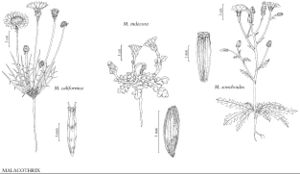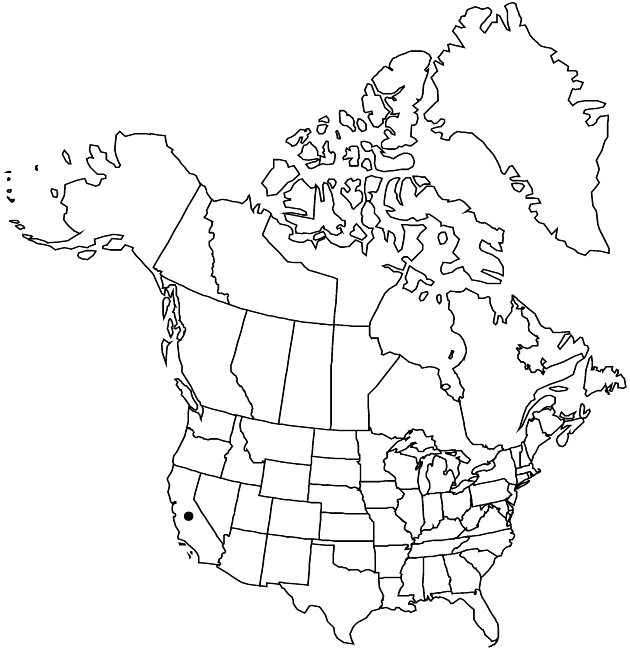Malacothrix indecora
Bull. Calif. Acad. Sci. 2: 152. 1886.
Annuals, 2–12 (–45) cm. Stems usually 1, erect or ± prostrate, usually ± branched proximally (often forming mats, usually leafy throughout), glabrous. Cauline leaves: proximal obovate to spatulate, usually pinnately lobed (lobes 1–3+ pairs, nearly equal, apices obtuse), usually fleshy, ultimate margins entire, faces glabrous; distal not reduced (similar to others). Calyculi of 8–13+, lance-deltate to lanceolate bractlets (sometimes intergrading with phyllaries), hyaline margins 0.05–0.2 mm wide. Involucres ± campanulate, 6–8 × 2–6+ mm. Phyllaries 13–22+ in 2–3 series, (often red-tinged) oblong to lanceolate, hyaline margins 0.05–0.2 mm wide, faces glabrous. Receptacles glabrous. Florets 18–76; corollas medium yellow, 4–8 mm; outer ligules exserted 1–4 mm. Cypselae ± prismatic, 1.2–1.5 mm, ribs extending to apices, 5 more prominent than others; persistent pappi 0. Pollen 70–100% 3-porate. 2n = 14.
Phenology: Flowering Apr–Jul.
Habitat: Shallow soils of ocean bluffs, open rocky areas
Elevation: 0–30 m
Discussion
Of conservation concern.
Malacothrix indecora is found on San Miguel, Santa Cruz, and Santa Rosa islands.
Selected References
None.
Lower Taxa
"fine" is not a number."]" is not declared as a valid unit of measurement for this property.

